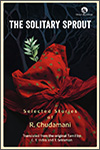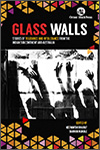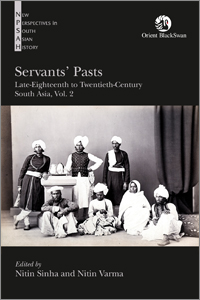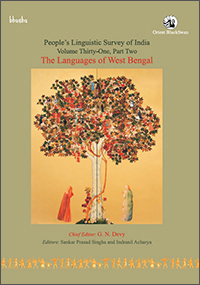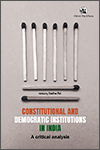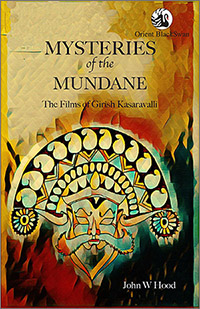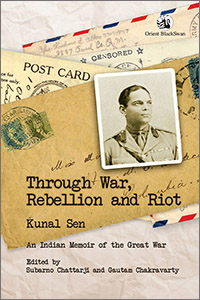| If you are unable to view the message below, click here to view |
 |
 |
| September 2019 |
|
|
|
|
| |
|
The book, The Solitary Sprout: Selected Stories of R. Chudamani, translated by C. T. Indra and T. Sriraman, was launched on 24 September 2019 at TAG Centre, Alwarpet, Chennai, organised by the R. Chudamani Memorial Trust.
click here |
|
|
|
|
The book, Reading India Now: Contemporary Formations in Literature and Popular Culture by Ulka Anjaria was launched on 21 September 2019 at the Great Indian Fandom Conference at Godrej One, Vikhroli, Mumbai.
click here |
|
|
|
|
The book, Glass Walls: Stories of Tolerance and Intolerance from the Indian Subcontinent and Australia, edited by Meenakshi Bharat and Sharon Rundle was launched on 24 September 2019 at the India International Centre, New Delhi.
click here |
|
|
|
| PUBLISHED in SEPTEMBER |
|
| Servants’ Pasts: Late-Eighteenth Century to Twentieth-Century South Asia, Vol. 2 |
| Nitin Sinha (ed.) is Senior Research Fellow, Leibniz-Zentrum Moderner Orient, Berlin, and Principal Investigator of the European Research Council-funded project, ‘Domestic Servants in Colonial India’. |
| Nitin Varma (ed.) is Fellow, International Research Centre ‘Work and Human Life Cycle in Global History’ (Re:Work), Berlin. |
| The importance of domestic service as a growing area of occupation and employment in contemporary South Asia is marked by a surprising silence about it in historical scholarship. The second volume of Servants’ Pasts covers the colonial and postcolonial periods. It lays out the intricate relationship between domestic work and employment in light of the growth of first, new moral regimes under colonialism and second, public avenues of employment under colonial institutions such as the municipality, school and hospital.At the heart of this book is the claim to push for a ‘domestic turn’ in the writing of South Asian social history. The essays explore the making of the site of the domestic at each historical conjuncture in the nineteenth and twentieth centuries by exploring its interaction with, and plotting its formation through laws, customs, norms, and practices |
| Series: New Perspectives in South Asian History |
|
|
|
| 140 x 216 mm |
340 pp |
Hardback |
Rs 895/- |
978-93-5287-694-5 |
Print on Demand |
|
 |
|
|
| The Languages of West Bengal: Vol 31, Part II |
| Ganesh N. Devy (chief ed.) is founder director of the Tribal Akademi at Tejgadh, Gujarat. He is the Chairperson of the People’s Linguistic Survey of India. |
| Sankar Prasad Singha (ed.) is retired Professor, Department of English, Vidyasagar University. |
| Indranil Acharya (ed.) is Professor, Department of English, Vidyasagar University. Apart from teaching, he is engaged in research work on Dalit and Adivasi languages and literature of West Bengal. |
| The languages spoken in the state of West Bengal belong to four different language families— Austroasiatic, Dravidian, Indo-European and Tibeto-Burman. The geographical location of the state has contributed to this wide variety and richness which The Languages of West Bengal (volume thirty-one, part II) of the People’s Linguistic Survey of India illustrates by documenting not only the five Scheduled languages of West Bengal—Bangla, Bodo, Nepali, Santhali and Urdu, but also providing a detailed study of the twenty-three Non-Scheduled languages that are spoken in the state. |
| Series: People’s Linguistic Survey of India |
|
|
|
| 180 x 240 mm |
612 pp |
Hardback |
Rs 2,695/- |
978-93-5287-841-3 |
|
|
 |
|
| FORTHCOMING in OCTOBER |
|
| Constitutional and Democratic Institutions in India: A Critical Analysis |
| Sudha Pai (ed.) currently heads the research institute PRAMAN (Policy Research and Management Network), Gurgaon. |
| The first part of this volume explores theoretical approaches to the study of institutions in India, while the remaining four parts cover the Parliament, the higher judiciary, the Election Commission of India (ECI), and some federal and social institutions, respectively. Against the backdrop of recurring political instability and a neo-liberal policy environment, the contributors raise many fundamental issues about the functioning of these institutions, their capabilities and the need for reform, and, in the case of the Parliament, the possibility of a shift to the presidential system of government and a model of cooperative federalism. |
| | |
| 140 x 216 mm |
464 pp (tentative) |
Hardback |
Rs 1,395/- (tentative) |
978-93-5287-846-8 |
|
|
 |
|
|
| Mysteries of the Mundane: The Films of Girish Kasaravalli |
| John W. Hood has spent most of his life studying Indian culture. He has written extensively on Indian art and independent cinema and is also known as a translator of Bengali literature. |
| In Mysteries of the Mundane, John Hood presents an intensive discussion on Kasaravalli’s work—including his diploma film, feature films and two documentaries. Kannada literature, cultural traditions and an abiding love for folk-theatre have shaped Kasaravalli’s storytelling and influenced his visual style. His films present microcosms of Karnataka and are firmly rooted in themes specific and local to that region; however, their poignant exploration of the commonplace shows that within the local, specific culture lie values, struggles, dreams and aspirations that are truly universal. |
|
|
|
| 140 x 216 mm |
228 pp (tentative) |
Paperback |
Rs 495/- (tentative) |
978-93-5287-843-7 |
|
|
 |
|
|
| Understanding Mughal India: Sixteenth to Eighteenth Centuries |
 |
|
| Meena Bhargava is Associate Professor, Department of History, Indraprastha College for Women, University of Delhi. |
| The Mughal Empire is a fascinating phase in the history of India. Its power and wealth, extent and territoriality, socio-economic dynamism, and its cultural vibrancy have kept scholars engaged in an animated, contentious debate. This volume is and attempt to understand the idioms and institutions, ethnic, racial, religious, and linguistic groups, and the regions that constituted the empire. It focuses on varied interpretations, complexities, and perspectives on the Mughal Empire across the sixteenth to the eighteenth centuries. |
|
|
|
| 140 x 216 mm |
384 pp (tentative) |
Paperback |
Rs 395/- (tentative) |
|
|
|
 |
|
|
| Through War, Rebellion and Riot |
 |
|
| Kunal Sen (author) |
| Subarno Chattarji (ed.) is Associate Professor, Department of English, University of Delhi. |
| Gautam Chakravarty (ed.) is Associate Professor, Department of English, University of Delhi. |
| Kunal Sen was an Indian Postal Service officer from Bengal who witnessed the First World War at close quarters when stationed in ‘Egypt, the Dardanelles, the Balkans, Mesopotamia and in Iraq’. Through War, Rebellion and Riot details his experience of World War I, the Arab rebellion, and the Bombay riots of 1921–22. Accompanied by a scholarly introduction, this memoir will be of interest to military historians, archivists, and researchers in memory and war studies projects. |
|
|
|
| 140 x 216 mm |
104 pp |
POD: Rs 250/- |
E-Book: Rs 195/- |
Print on Demand |
|
|
 |
|
| |
Keep in touch
Facebook at www.facebook.com/OrientBlackSwan
LinkedIn at www.linkedin.com/company/orient-blackswan
Twitter@OrientBlackSwan |
Place an Order
info@orientblackswan.com |
| | |

